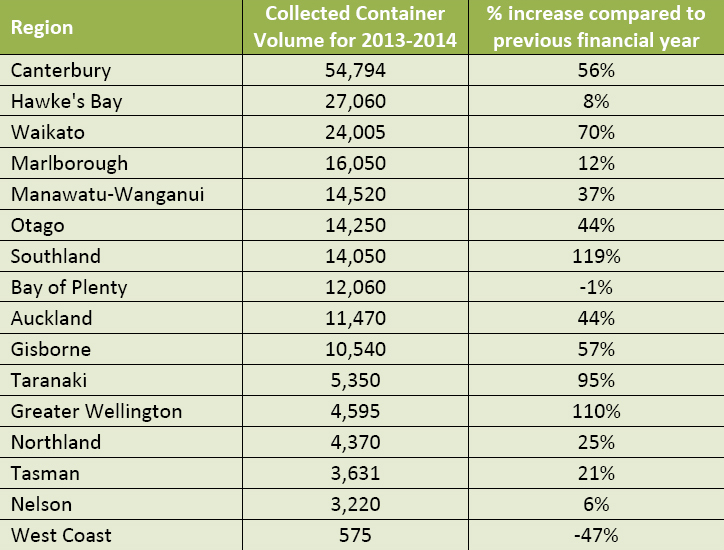Agrecovery Foundation is calling for councils to introduce and enforce burning bans after a recycling surge followed the introduction of a burning ban in Canterbury in January 2014.
Container recycling in the Canterbury region increased 113 percent to 36,140 kg in the six months after the introduction of the ban, compared to 16,960 for the same period last year.
“We have seen a clear link between this ban and an increase in recycling in the Canterbury region,” says Agrecovery Foundation Chair, Graeme Peters.
“It’s hard to argue with the numbers. The positive stand by Environment Canterbury has had a marked impact on the environment and we are calling on other councils to implement new bans or do more to enforce existing bans.
“In just six months, we’ve seen an additional 20 tonnes of plastic recycled instead of burned or dumped on properties around the region.”
Peters says the Foundation wants to encourage other councils to introduce regulations to motivate farmers to improve their behaviour and take advantage of the available recycling services.
Recycling right across New Zealand is increasing, with the Agrecovery programme exceeding its 2013/2014 container recycling target of 207,000 kg by over 12,000 kg.
“The number one priority of the Foundation is to see an increase in container plastic recycling and we’re pleased to have achieved that this year.
“And while it’s encouraging to see an increase in recycling activity across the board, we know that we would see even greater rates of behaviour change if farmers and growers have disincentives to burn plastic as they do in Canterbury.”
Peters is keen to remind the primary industry that it is the voluntary levies paid by the 60 manufacturers and distributors of agrichemical, animal health and dairy hygiene products that enables Agrecovery to provide the recycling programme to farmers and growers free of charge.
“These companies show a commendable commitment to product stewardship by helping their customers responsibly dispose of leftover chemicals and packaging through the Agrecovery programme.”
“It’s also important to remember that many retailers, vets, councils and contractors support this programme through the provision of collection site facilities and other resources. We are grateful to all stakeholders and their staff for helping to make the programme as accessible as possible to farmers and growers.”
FAST FACTS
Container Programme
• Total volume of container plastic collected by Agrecovery for the period July 2013 – June 2014 was 219,357 kg.
• The amount of energy saved when using this volume of recycled plastic versus making new plastic equates to 372,300 litres of petrol.
• Volume of container plastic collected in the Canterbury region increased 113 percent since the ban on burning was introduced compared to the same period last year.
• Overall, collected volumes of recycled containers increased 57 percent in the first 6 months of this year compared to the same period last year.
Brand Owners and Members
• As at 1 July 2014, there are 61 brand owners financially supporting the container and chemical programmes, with 4 brand owners joining Agrecovery during the financial year.
• Agrecovery ended the financial year with 9,672 members, 1,376 of which joined during the 12 month period.
Chemicals Programme
• Seven regional agrichemical collections were held in Canterbury, Nelson, Otago, Southland, Taranaki, Tasman and Waikato during 2013/2014.
• Provisional collected volumes of unwanted or expired chemicals equates to 18,279 kg.
Regional Volumes

